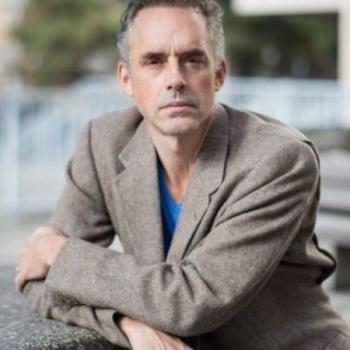One of the stories is about the role of religion, and one is about the role of science. Are you for or against religion and science?
I don't think it's possible to be for or against either of these, any more than you can be for or against clothes, food, or music. There are what I'd call good and bad religion, and good and bad science. It's the job of thoughtful people to try to sort out which is which. In the story about the role of religion in the environmental crisis an orthodox Muslim and an orthodox Jew, who are working together to study the condition of the Appalachian trail (they have a blog at JewMuslimplanethope.org) encounter two environmentalists who despise religion. As they talk each side has to admit that the other one has some important things to say. I think it's especially powerful when the orthodox Jewish environmentalist points out to the aggressively secular soil ecologist that it was scientists, not superstitious, backward, dopey religious types who made the carcinogenic pesticides, the ozone-layer damaging CFCs, and the huge trawlers that have emptied the ocean of fish.
One of the stories is about a philosophy class in prison, isn't that a pretty unrealistic setting?
Surprisingly, there are philosophy classes in prison. And there are Buddhist meditation retreats as well—which is why it is not completely crazy that one of the characters became a Buddhist in prison.
But as you read the story you see that the prison is also a metaphor for how we are all limited by our beliefs—how we shut ourselves in at the same time that we shut other people out. The characters in the story—Richard, Charles with his love of the free market, the small time crack dealer Raoul who thinks people just live for pleasure, a Christian fundamentalist who is inside for killing an abortion doctor and a fundamentalist Muslim who took out a drug dealer, even Arthur, who became a Buddhist in prison—all of these people speak up for what they believe, but find it almost impossible to listen to others. In the story we see how they limit themselves, and also some of the doubts and fears they keep hidden.
Towards the end of the story Kate, the social worker leading the class, realizes that in some ways she is no more open to their ideas than they would be to her feminism and liberalism. She too is in a kind of prison.
You have a long story on despair. Is that something you know about personally?
Aldo Leopold, the great environmental ethicist, said that to be an environmentalist is to "walk alone in a world of wounds." I'm not sure about the alone part, but a world of wounds? Yes, that's what we are in. So any serious environmentalist, any serious spiritual person, has to face the losses we are creating. All of us who look at the world can find similar losses in poverty, war, crushing injustice, or just the plain, crazy irrationality of a world with magnificent technology and so much unhappiness.
I've struggled with despair for the world for a long time, written about it in other books (especially one called A Spirituality of Resistance: Finding a Peaceful Heart and Protecting the Earth), and try to comfort myself by believing that whatever happens, life is a miracle. And that's it's enough that it has ever existed at all. And that's what some of the characters learn, though they have to suffer personally and have some pretty wild experiences in chapter 8 to get there.
A lot of the book is about people learning to listen to each other even when they totally disagree. Is there any limit on that? Are there times when we just can't listen?
Sure there are. That's the question I pose to the man who (as I set up the book) "gives" me the stories. "What about Hitler," I ask, "what about the ones you just can't talk to?" And the answer is that learning to listen is where we should start, where we learn to change, where we slow down and face our fear of difference and see what can come to us. In the end we might have to fight, and with some people, sadly, the end comes really soon. But we're always going to be facing somebody who is different—how will we talk and listen to them?
Tell me about a time in one of the stories when the characters learn something you'd like the reader to learn.
Well, here are two.
Fred is a liberal Protestant minister, a really hard-working, good-hearted, committed social justice type. We encounter him in the two stories about the environmental group Richard is starting. But Fred's wife and children are killed when a truck carrying toxic material overturns on the highway. He is in complete despair, and has suffered so much he no longer believes in God. In the story on despair (chapter 8) he has a remarkable experience and finds out that God is not, actually, like the living room couch (simply either there or not), but that God is a relationship of motion, action, transcendence, and love. As long as he cares, as long as he wants to move to something better, he can have God in his life. He faces his pain, cries for an unimaginable length of time, and then goes back to the work of making the world better.




